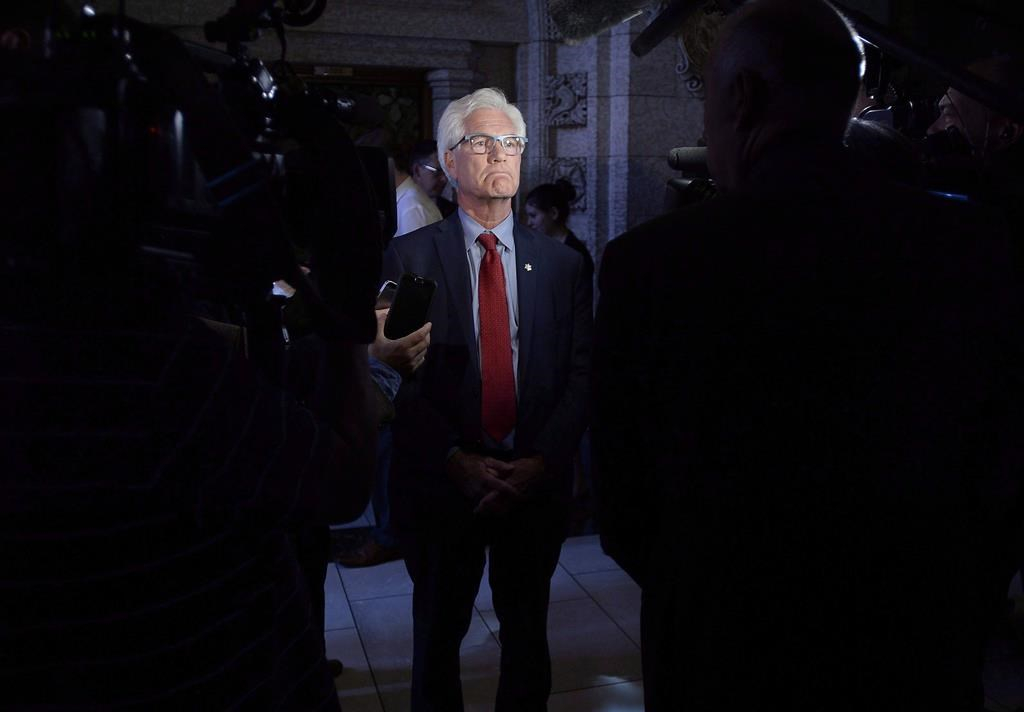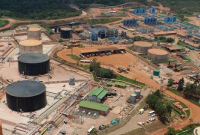Support strong Canadian climate journalism for 2025
The federal government has taken a step towards fulfilling it's promise to get rid of fossil fuel subsidies by agreeing to finally explain how much it actually spends on them.
Natural Resources Minister Jim Carr was in Argentina on Thursday where he and his Argentinian counterpart announced that each country will conduct a study on how much the other country subsidizes its fossil fuel industries.
As part of both the G7 and G20, Canada has committed every year since 2009 that it will work to phase out inefficient fossil fuel subsidies. The Liberals made it a campaign promise in 2015 and the following year said it would be done by 2025.
Last year, auditor general Michael Ferguson said he tried to test the progress being made on phasing out the subsidies but blasted the government for refusing to provide documents that would allow him to do so.
Last month, a dozen of Canada's most well known and influential environment groups flagged lack of action on fossil fuel subsidies in a report card on the government's efforts to deliver on its environmental promises.
Earlier this month, Canada fared poorly in a report ranking the progress of the G7 nations on phasing out fossil fuels. The report, completed by Oil Change International and the International Institute for Sustainable Development, concluded that the seven biggest developed economies in the world collectively contribute more than $100 billion a year to help the fossil fuel industry.
While the U.S. spent the most overall, Canada spent the most per capita of any G7 country on oil and gas production, according to the report.
Canada also received a poor grade for transparency of its subsidies.
Catherine Abreu, executive director of the Climate Action Network-Canada, said agreeing to work with Argentina to peer review each other's subsidies is a very good sign the government is finally moving on its commitment to phase them out.
Environment groups have used publicly available documents to try and figure out how much Canada subsidizes oil and gas companies but, without the government producing its own thorough review, Abreu said it's very hard to know what's missing.
Existing reviews suggest Canada offers about $3 billion to companies to explore and produce oil and gas within Canada. Export Development Canada also finances oil production in other countries, spending almost $12 billion in 2016 and $10 billion in 2017 on foreign oil production.
Abreu said the government has never really defined what it means by "inefficient" subsidies so this review may finally shed light on that aspect as well.
A spokesman for Carr said the government will make the review report public once it is complete.





Comments
About g d time. Unless it's just another delaying tactic.
I assume Trudeau's $4.5 billion purchase of Trans Mountain pipeline will be included under "subsidies"?
I would be very surprised if these promises will ever be met. Government, industry and lobbyist's interests are tightly intertwined.
Is there an estimate about the time it will take for it to be ready? Should they not have been given a date when it must be submitted?
It seems to me that ‘our’ buy-out of Trans Mountain could be understood to be an additional subsidy to the FF Industry. Given that, perhaps we should cut back on the existing subsidies by the amount we are out of pocket to Kinder Morgan. For example to immediately discontinue the estimated $3B we provide to companies to explore and produce oil and gas. Then reduce the amounts that Export Development Canada spends to finance oil production in other countries ($10B in 2017) by at least $1.5B ( to cover the balance of the cost for our 65 year old pipeline). Once the deal is done, then every additional dollar spent on the TMX ‘nationally important’ project should be financed from the pool of existing subsidiesto the Industry.
I am no mathematician, but I can balance a cheque-book. If there ever was a situation of ‘double-dipping’ out of our wallets, this would appear to be a mighty big whack of change for us taxpayers to cover, especially because every penny of it is making climate change worse, and diminishing the possibility of a 1.5 to 2 degree rise in global temperature.